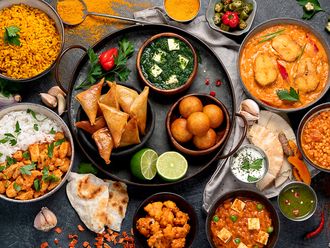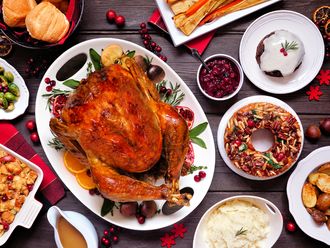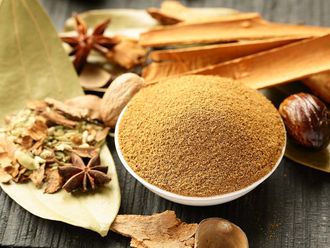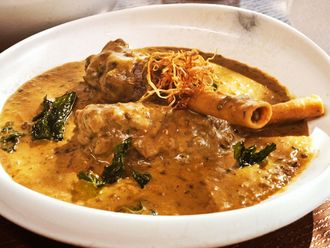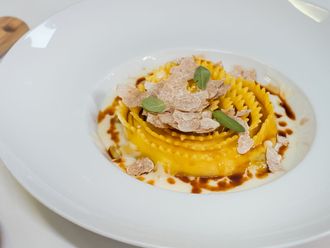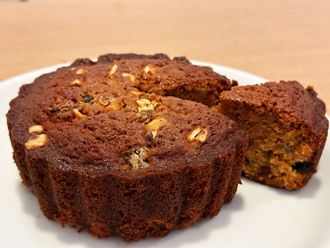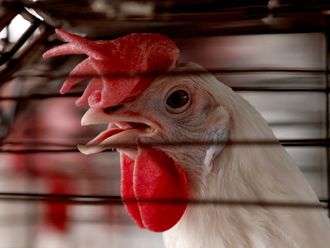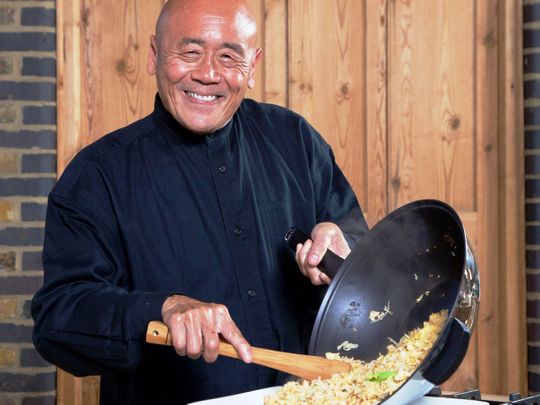
Fried rice, stir fries and sweet corn chicken soup – Chinese staples that most of us are familiar with. Of course, with a generous sprinkling of MSG or monosodium glutamate. For many, that is the taste of Chinese food.
By Ken Hom’s standards, this is sacrilege. A well-known American-Chinese Chef, he has made it his business to throw MSG out of the kitchen. And he spoke to Food by gulfnews.com about the need to understand that for the Chinese, food was not just a passion but an obsession.
Hom started early. Like many Southeast Asians, his parents decided to steer clear of American fast food during his childhood years in Chicago. His mother would send him to school every day with a home-cooked meal of rice and stir-fried vegetables. By the age of 11, he was working part-time at his uncle's restaurant – the ringing of a ladle against a wok and the pounding of a sharp cleaver were part of the soundtrack of his childhood.
Soon, he was funding his tuition at the University of California by giving cooking lessons. He studied art and French history. He went on to open a cooking school, write several cookbooks, appear in prime time TV series, and cook for celebrities including Tina Turner, Rowan Atkinson, Elton John and Kate Moss, along with world leaders.
The 71-year-old chef refers to Chinese cuisine as sophisticated and disagrees with its reputation of being greasy.
Underlying all Chinese cooking is the ancient yin yang theory of food science. The Chinese diet is a very healthy one since it depends upon cooking methods that preserve vitamins and use small quantities of meat and not dairy products.
“Underlying all Chinese cooking is the ancient yin yang theory of food science,” he said. “The Chinese diet is a very healthy one since it depends upon cooking methods that preserve vitamins and use small quantities of meat and not dairy products.”
Read on to discover the basics of Chinese cooking, Chef Hom’s go-to dish, and how you can replicate some of his best recipes at home.
How important is food to you?
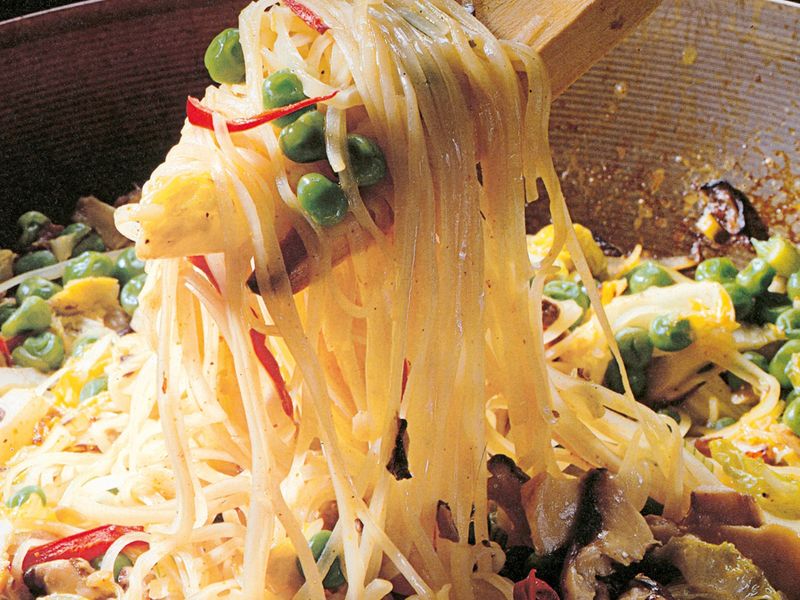
Good food has been an important part of my life since my earliest childhood. I well remember my family gathered around the dinner table endlessly discussing what we were to eat, how it would be prepared, what our favourite dishes were, the best methods for cooking various delicacies, and so forth. In fact this is a common experience for most Chinese -- food is our favourite topic of conversation.
For us food is more than a passion, it is an obsession, and good eating is believed to be essential to good living. We Chinese have an expression: "Chi fan le mei you?" It literally means: "Have you eaten yet?" It is used universally as a greeting, just as one would ask in English: "How are you?" It is also a wish for one's health and happiness. It is an entirely appropriate phrase since food to the Chinese has always meant much more than mere sustenance, and the processes of cultivating, selecting, cooking and consuming it are completely embedded into Chinese culture.
Like all Chinese children I absorbed a great deal of knowledge about Chinese cuisine simply by listening to the dinner table conversations of my relations. My real culinary training, however, took place in my uncle's restaurant in Chicago where I started to work part-time at the age of 11.
Later in my early 20s I began teaching Chinese cookery and established my own school in California and Hong Kong. I also taught at a school for professional chefs and wrote my first book, which lead the BBC to audition me. The rest as they would say is history.
For us food is more than a passion, it is an obsession, and good eating is believed to be essential to good living. We Chinese have an expression: 'Chi fan le mei you?' It literally means: 'Have you eaten yet?' It is used universally as a greeting, just as one would ask in English: 'How are you?' It is also a wish for one's health and happiness. It is an entirely appropriate phrase since food to the Chinese has always meant much more than mere sustenance, and the processes of cultivating, selecting, cooking and consuming it are completely embedded into Chinese culture.
What do you think has made Chinese cuisine popular globally?
Thanks to the recent dizzying pace of improvements in transportation, communication, marketing and travel facilities, the peoples and cultures of the world have been brought into even greater proximity.
This process, to be sure, has not always meant untroubled contacts. But it is safe to say that one of the most positive and benign results of these changes has been to make available to people the world over the foods, ingredients, techniques and culinary styles of what used to be seen as ‘exotic’ cuisines. So it is with Chinese cookery.
Today one may walk into almost any supermarket in the UAE, Europe, Australia and America and find, for example, fresh ginger, bok choy, and a limited spectrum of Chinese sauces and condiments.
Recently, Chinese cuisine has increasingly been labelled as greasy and unhealthy, losing fans as people make a shift to other South Asian choices. Thoughts?
The Chinese diet is a very healthy one since it depends upon cooking methods which preserve vitamins and use small quantities of meat and not dairy products.
Underlying all Chinese cooking is the ancient yin yang theory of food science, which is closely related to Chinese beliefs about health.
In China, all foods are divided into one of three groups: yin, for cooling foods; yang, for heating foods; and ying yang for neutral foods. To the foreigner there is little obvious logic in the way the foodstuffs are assigned to these categories.
Yin foods include items as diverse as crab, duck and soda water. Yang foods include beef, coffee and smoked fish. Neutral foods include bread, steamed rice, carrots, pigeons and peaches.
Three Ken Hom recipes you must try
Not only are all foods sub-divided in this way but people are too.
A yin person is quiet and introverted, while a yang person is a more active, outgoing type. The effect of different foods on an individual will depend upon the way they conflict with or complement his personality type.
The idea is to construct a meal and one's whole diet to achieve the right balance or harmony.
Most Chinese have some knowledge of the yin yang food science as the idea is instilled into them from a very young age.
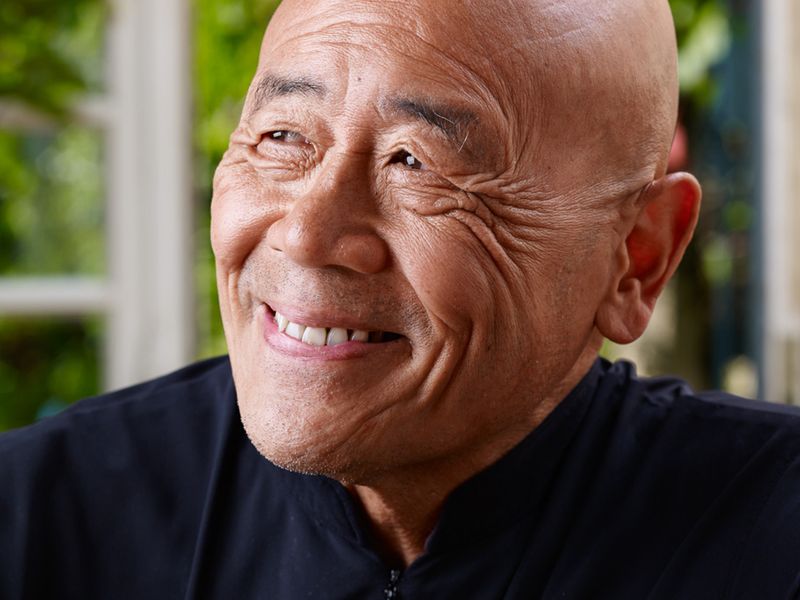
MSG has become one of the most controversial food ingredients in recent past, and heavily linked to Chinese food. Does it have a role in the kitchen?
My thoughts are to avoid this ingredient. That it was originally derived from a naturally occurring salt in no way mitigates its perniciousness. It is at once unnecessary, undesirable and destructive to and in authentic Chinese cuisine.
In the words of the peerless authority on Chinese food, E.N. Anderson, MSG "wrecks the subtle and complex blending of flavours essential to fine cuisine". It also produces in susceptible people an allergic reaction - a burning sensation in the torso, a feeling of pressure behind the forehead and eyes, and chest pain - known as ‘Chinese restaurant syndrome’.
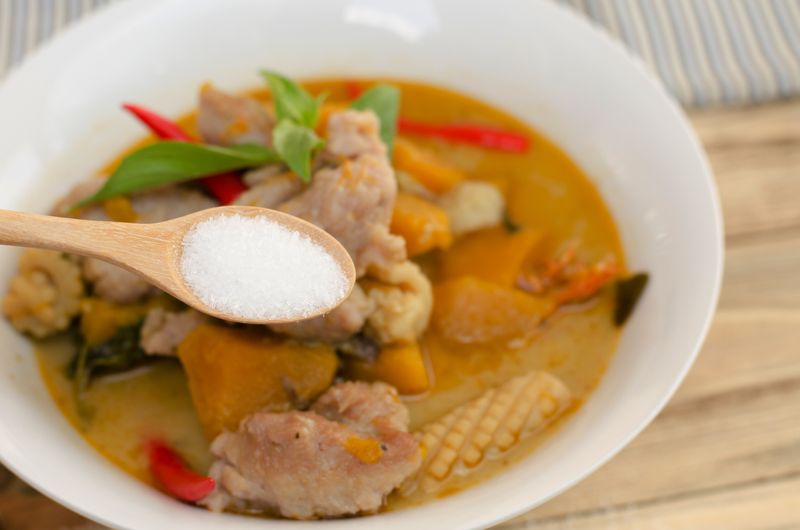
Traditional Chinese cooking uses sugar but sparingly, salt only in pickled and preserved dishes, and MSG not at all, because that additive was only discovered in 1908.
Sad to say, it has entered into Chinese restaurant fare and even into modern cookbooks, along with overdoses of oil, sugar, corn starch and salt. To be blunt about it: MSG is used only by lazy cooks and fast food providers who rely upon cheap ingredients and use watery stocks that require sugared and salted and ‘enhanced’ additives to satisfy the consumers who have never tasted the real thing.
The best food, Chinese or otherwise, relies only upon the freshest natural ingredients, carefully prepared and pleasingly combined and served. It is all worth the effort.
I am happy to report that more and more restaurants are proclaiming ‘No MSG’ on their door fronts and menus. Keep it out of your kitchen, too.
To be blunt about it: MSG is used only by lazy cooks and fast food providers who rely upon cheap ingredients and use watery stocks that require sugared and salted and ‘enhanced’ additives to satisfy the consumers who have never tasted the real thing.
What are the three biggest changes you’ve noticed in the food industry from the time you began your career?
First there is much more awareness of organic ingredients.
Second there is awareness of different types of cuisine not simply classic French, for example. Finally, with globalisation and communication we are up to date on what everyone is cooking in the world.
One of your most dramatic moments in the kitchen…
There are too many to tell, but once I said you must get your wok very hot - and it went up in flames on camera!
What’s your go-to dish when you cook for yourself?
A simple dish of Chinese sausage steamed with rice, topped with a crispy fried egg drizzled with oyster sauce.
What are the basics of Chinese cooking?
Chinese cooking presupposes that every ingredient has been properly prepared for the cooking process. This means that meats and vegetables have been cut into appropriate shapes and sizes, so as to cook quickly and evenly while retaining their natural tastes and textures. This means that food can be cooked for a minimum of time … retains its natural texture and taste. The other reason … to enhance the visual appeal of a dish.
This is why most Chinese cooks are so specific about cutting techniques, particularly where vegetables are concerned. The Chinese always use a cleaver for these tasks, wielding it with skill and dexterity.
Chinese is a sophisticated cuisine … several different techniques may be used in the preparation of a single dish.
There is nothing mysterious about such techniques and mastery of them comes quickly in almost every case.
When you plan your meals be sure to select dishes that involve a range of techniques. Limit yourself to one stir-fried dish per meal until you have become used to the techniques that this crucial style of cooking employs.
If you had one tip for the home cook for Chinese cooking of meats, what would it be?
First get the most tender and leanest cut of meat, such as filet mignon. Here is the conventional method of slicing food. Hold the food firmly on the chopping board with one hand and slice the food straight down into very thin slices.
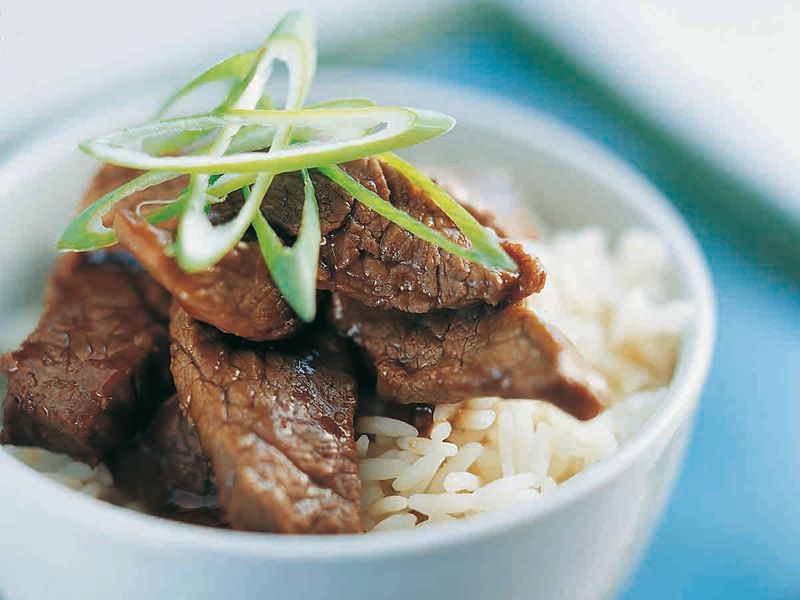
Meat is always sliced across the grain to break up the fibres and to make it tenderer when it is cooked. If you use a cleaver rather than a knife for this, hold the cleaver with your index finger over the far side of the top of the cleaver and your thumb on the side nearest you to guide the cutting edge firmly. Hold the food with your other hand, turning your fingers under for safety. Your knuckles should act as a guide for the blade.
Do you plan to set up a restaurant in the UAE at some point in the future?
I have done pop-up restaurants at Burj Al Arab, Dubai, as well as at the Jumeirah Beach Hotel, Dubai, in the past. However, at 71 years of age, I don’t foresee a restaurant anywhere! But I have a [translated] book in Arabic - Ken Hom Chinese Cookery.
Tell us about your favourite dishes or recipes at food@gulfnews.com



